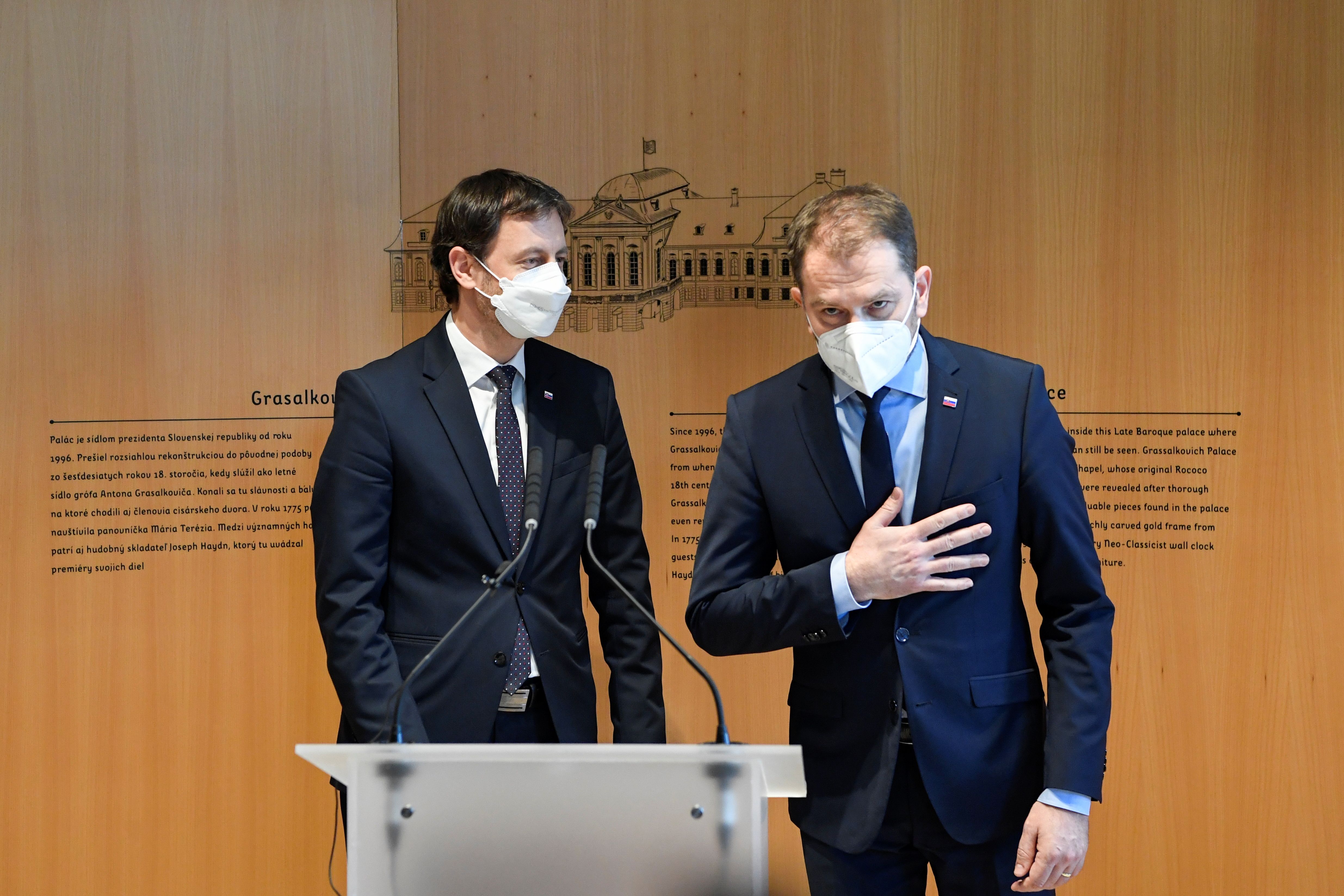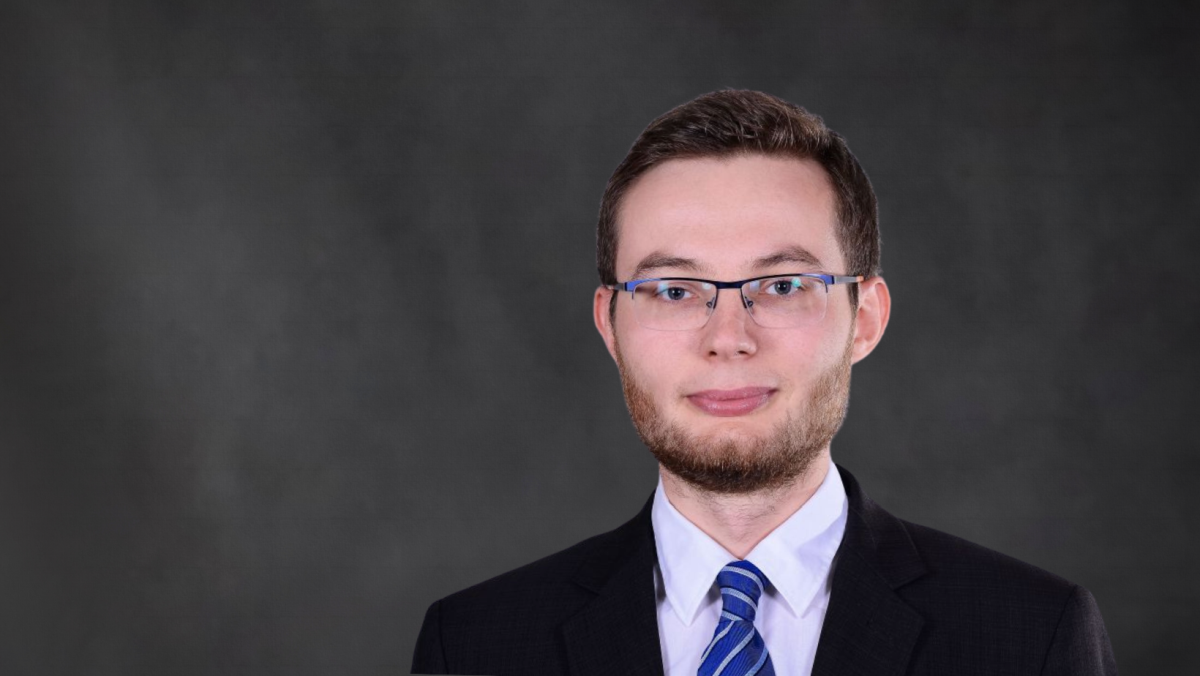Formation of the Heger Government in Slovakia

Why did the Matovič government collapse?
Disputes in the government concerning, among others, pandemic-related restrictions, escalated after the purchase of the Russian Sputnik V vaccine at Matovič’s initiative. This happened not only against the will of the coalition partners but also without their knowledge. As a result, SaS and For People demanded the prime minister’s resignation. Although Matovič declared he was prepared to do so, he stated several conditions, among others, the resignation from government and parliamentary functions of the nominees of the coalition partners. They met most of the PM’s demands, but his resignation—and, consequently, the entire government—came after the threat of withdrawal from the coalition of the We Are Family party and the prospect of early elections. Given the support for OĽaNO at 11.3% in mid-March this year (compared to 25% in the February 2020 elections), Matovič resigned as prime minister, a move welcomed by 82% of Slovakia’s inhabitants. Eventually, he also withdrew his demands against the coalition partners.
Who is the new prime minister?
Heger is an economist who served as finance minister and deputy prime minister from OĽaNO in Matovič’s government. In economic matters, he tried to limit the deficit deepened by the pandemic, while in ideological matters he is a conservative. He has been a member of the National Council since 2016, elected from the OĽaNO list. Previously, he gained experience in the private sector, working, among others in the American company Cubic, dealing with military training systems. Unlike Matovič, he is perceived by the coalition partners as a conciliatory politician, which made his appointment easy for them to accept. He is the third head of the Slovak government since the fall of the cabinet of long-time Prime Minister Robert Fico three years ago.
What are the changes in the coalition government?
Apart from the swap between Matovič and Heger, there were minor personnel adjustments in the new government. The new cabinet includes most of the ministers who had resigned. The return to the post of economy minister of Richard Sulík, leader of SaS and the main rival of Matovič, may herald political and personal disputes with the minister of finance and further intra-coalition friction. Among the new appointments was Gen. Vladimír Lengvarský, who replaced the health minister, Marek Krajčí, from OĽaNO, who was criticised in the coalition as ineffective in combating the pandemic and directly responsible for the purchase of the Sputnik V doses. In turn, the candidacy of Jozef Hlinka (For People) was rejected by President Zuzana Čaputova, who used her constitutional powers as the head of state.
What will the new cabinet focus on in domestic politics?
The actions of the new government will be based on the programme of the Matovič cabinet, and therefore a continuation of the main policy directions should be expected. The most important tasks will remain to counteract the effects of the COVID-19 pandemic and reform of the judiciary. Heger also wants to accelerate the digitisation of the Slovak economy and—among the immediate tasks—the vaccination campaign, to which in a twist of fate the already purchased and approved Sputnik V may contribute. Maintaining the coalition of four parties will enable Heger to efficiently govern with a parliamentary majority. The new cabinet was backed by 91 out of 93 deputies from coalition parties in the 150-member National Council. One of the new government’s first tasks will be managing the pandemic restrictions through Easter.
What does the change of government mean for foreign policy?
The return of Ivan Korčok to the position of minister of foreign affairs means a continuation of the previous foreign policy of the government. In practice, this will translate into activities aimed at strengthening Slovakia’s position in the EU, including through various formats of regional cooperation—the Visegrad Group, the Slavkov Triangle and the Central Five—as well as expanding cooperation with the U.S. The change of prime minister will positively affect the coherence of Slovakia’s external actions, damaged by the uncoordinated purchase of the Russian vaccine. Heger, like Korčok, postulated a change in the image of the V4, suggesting the greater involvement of Slovakia in the work of the group. As a member of the Matovič government, he participated in V4 activities, concluding the meeting in Warsaw in September last year and the declaration on cooperation between finance ministers. His knowledge of Poland, which he visited the most as a deputy in the previous parliamentary term, has the potential to strengthen bilateral relations at the level of heads of government.


